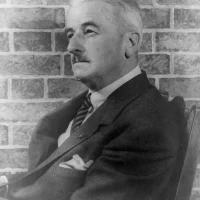U.S. diplomats who helped lay the groundwork for the North American Free Trade Agreement (NAFTA) first had to overcome entrenched Mexican skepticism. The United States, Canada, and Mexico decided in mid-1990 to start negotiating a free trade agreement. Discussions began in earnest early the following year. By mid-1993 the parties were fine-turning a draft agreement.… Read More "Getting Mexico to the NAFTA Negotiating Table"
The collapse of Zaire at the end of the First Congo War 1997
In the aftermath of the 1994 Rwandan genocide, ethnic Hutu refugees — including génocidaires — who had crossed into East Zaire to escape persecution from the new Tutsi government carried out attacks against ethnic Tutsis from both Zaire (now the Democratic Republic of the Congo) and Rwandan refugees. The Zairian government was unable to control the ethnic Hutu marauders, and indeed lent them some support as allies against the new, Tutsi-led Rwandan government. In response, the Tutsis in Zaire joined a revolutionary coalition headed by Laurent-Désiré Kabila. Kabila’s aim was to overthrow Zaire’s one-party authoritarian government run by Mobutu Sese Seko since 1965. With Kabila’s forces on the march, Zaire was soon engulfed in conflict. These hostilities, which took place from 1996-1997, are known as the “First Congo War” and lead to the creation of Zaire’s successor state The Democratic Republic of Congo. The United States, who had supported Mobutu until the end of the Cold War, recognized how potentially dangerous the situation was as Kabila gained control of most of the country and advanced rapidly towards the capital city of Kinshasa. In 1997, the United States sent a small group of diplomats to broker negotiations and attempt to come to a peaceful agreement between Mobutu and Kabila. Read More "The collapse of Zaire at the end of the First Congo War 1997"
William Faulkner, among the most decorated writers in American literature with the 1949 Nobel Prize for Literature, the Pulitzer Prize for Fiction and the National Book Award among his honors, was invited to Japan in 1955 under the auspices of the Exchange of Persons Branch of the United States Information Service (now consolidated into the… Read More "Sound, Fury, Brilliance & Booze: Faulkner in Post-War Japan"
Protecting Greenland: The American Consulate at Godthab, 1940-42
During World War II, Nazi Germany invaded and occupied continental Denmark, leaving the Kingdom’s other two territories, the Faroe Islands and Greenland, exposed to a possible German invasion. The United Kingdom quickly occupied the Faroe Islands and, along with Canada, made plans to occupy parts of Greenland, which would drag the otherwise neutral island into… Read More "Protecting Greenland: The American Consulate at Godthab, 1940-42"
Raymond Hare: Our Man in Cairo during WWII
Egypt and the Suez Canal became a point of global strategic interest during WWII because of the quick access the waterway could provide to Middle East oil, raw materials from Asia, and– for the British Empire particularly– a connection to its distant territories. Britain, as the first state to launch a completely mechanized military, was particularly… Read More "Raymond Hare: Our Man in Cairo during WWII"
Rebuilding Iraq after the Second Gulf War: Lewis Lucke
In January 2003, the U. S. Government established the Office of Reconstruction and Humanitarian Assistance (ORHA) to act as a caretaker administration and begin to rebuild Iraq. Coalition forces from the U.S., UK, Australia and Poland invaded Iraq two months later, launching Operation Iraqi Freedom. The initial phase, with major combat operations, lasted from March… Read More "Rebuilding Iraq after the Second Gulf War: Lewis Lucke"
You Know a Coup is Coming but No One will Listen: Sudan 1964
Sudan’s long history has been riddled with internal conflict. The United Kingdom and Egypt controlled Sudan for the first half of the twentieth century, then agreed to cede it self-government in 1953. In December 1955, the premier of Sudan declared unilateral independence. The newly independent Republic swiftly fell into a pattern of civil wars, coups… Read More "You Know a Coup is Coming but No One will Listen: Sudan 1964"
Foreign Service Newly-Weds in 1960s Yemen
Since the dissolution of the Ottoman Empire, Yemen was been a hot spot for unrest in the Middle East. The 1960s saw instability and hostile relations between the socialist South Yemen and the authoritarian Yemen Arab Republic (YAR), also known as North Yemen. The YAR was in the midst of a bloody civil war that… Read More "Foreign Service Newly-Weds in 1960s Yemen"
Guns, Oil and Education: Qatar’s Evolving Relationship with the U.S.
The State of Qatar declared independence from Great Britain on September 3, 1971 and the U.S. recognized it two days later, establishing diplomatic relations in March 1972. The American Embassy in Doha was launched the following year, and the first resident U.S. Ambassador to Qatar presented his credentials in August 1974. The relationship has developed… Read More "Guns, Oil and Education: Qatar’s Evolving Relationship with the U.S."
Intelligence, Research, God and Country: a Tour in INR
Teresita Schaffer enjoyed an illustrious 30-year career in the Foreign Service, developing a reputation as a leading expert on South Asia and international economics. She served in embassies in Pakistan, India, and Bangladesh and as U.S. Ambassador to Sri Lanka and the Maldives from 1992-1995. After a first tour in Israel, Ms. Schaffer returned to… Read More "Intelligence, Research, God and Country: a Tour in INR"

